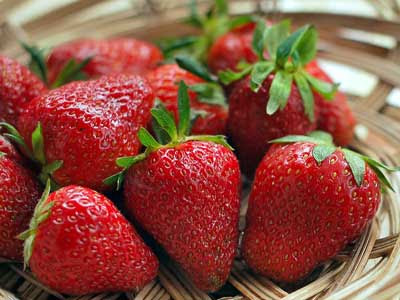In 2015, 3 million adults reported being diagnosed with IBD. IBD includes both Crohn’s disease, which can infect any part of the gastrointestinal tract, and ulcerative colitis, which is characterized by inflammation of the colon and rectum. People with IBD also have a higher risk of colorectal cancer.
The dietary consumption of fruits and vegetables has been associated with a lowered risk of IBD.
The researchers found that dietary consumption of whole strawberries at a dose equivalent to as low as three-quarters of a cup of strawberries per day in humans, significantly, suppressed symptoms like body weight loss and bloody diarrhoea in mice with IBD. Strawberry treatments also diminished inflammatory responses in the mice’s colonic tissue.
But decreased inflammation wasn’t the strawberry’s only conferred benefit during this study. Colonic inflammation adversely impacts the composition of microbiota in the gut. With IBD, the abundance of harmful bacteria increases, while levels of beneficial bacteria decrease in the colon. Following the dietary treatments of whole strawberries, the researchers observed a reversal of that unhealthy microbiota composition in the IBD mice.

















Related Items
New compound synthesised can combat aggressive breast cancer
New magnetic nanoparticles may help treat Cancer
Antidepressant drug can be repurposed to treat breast cancer